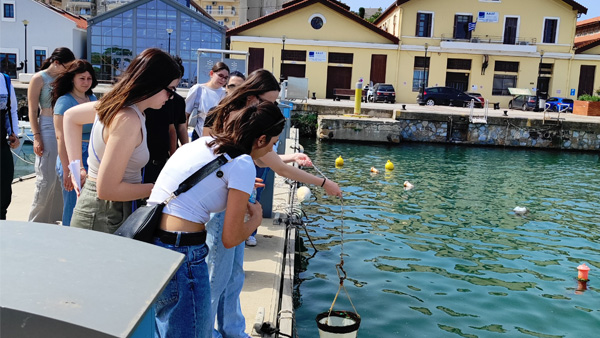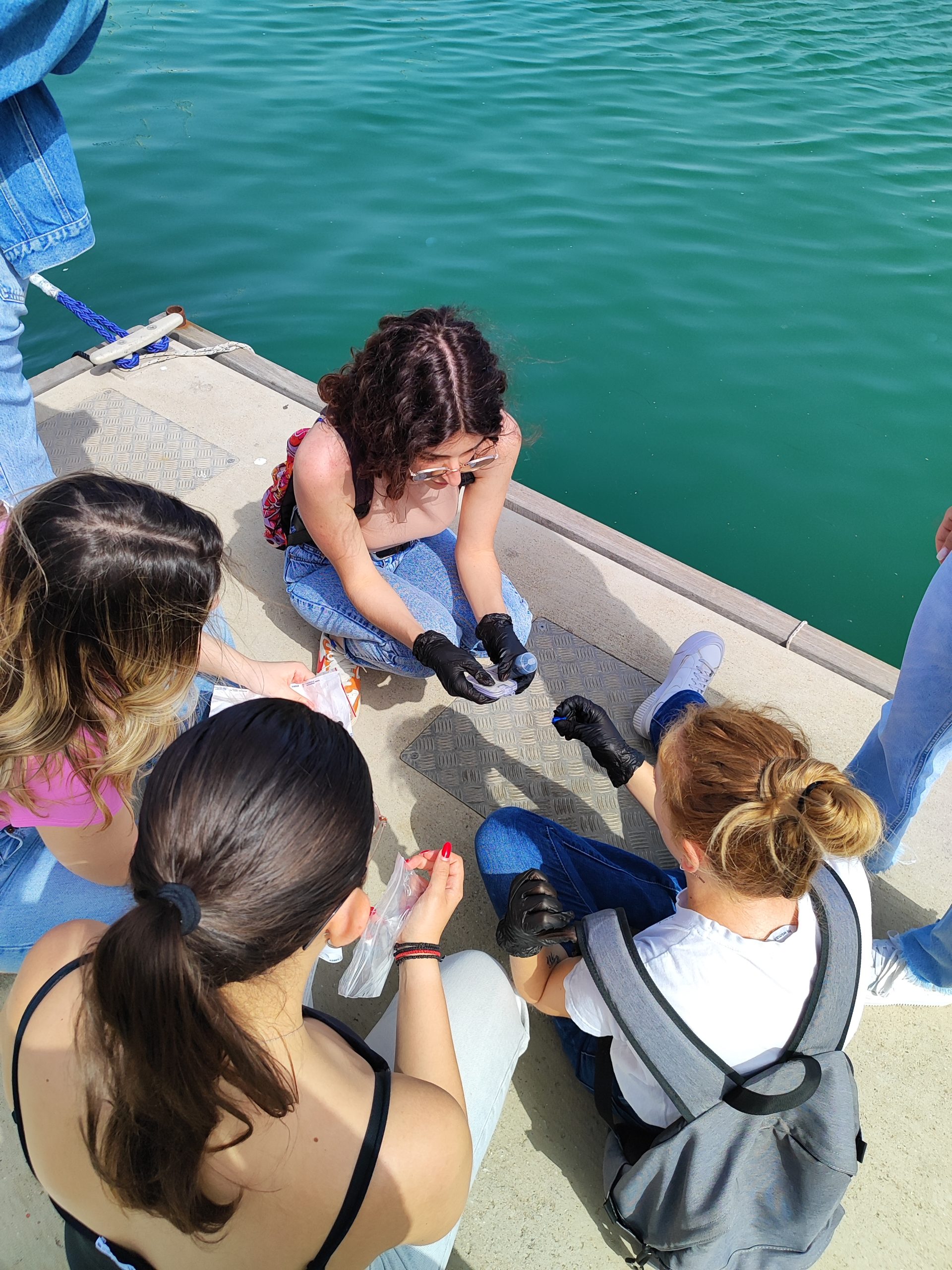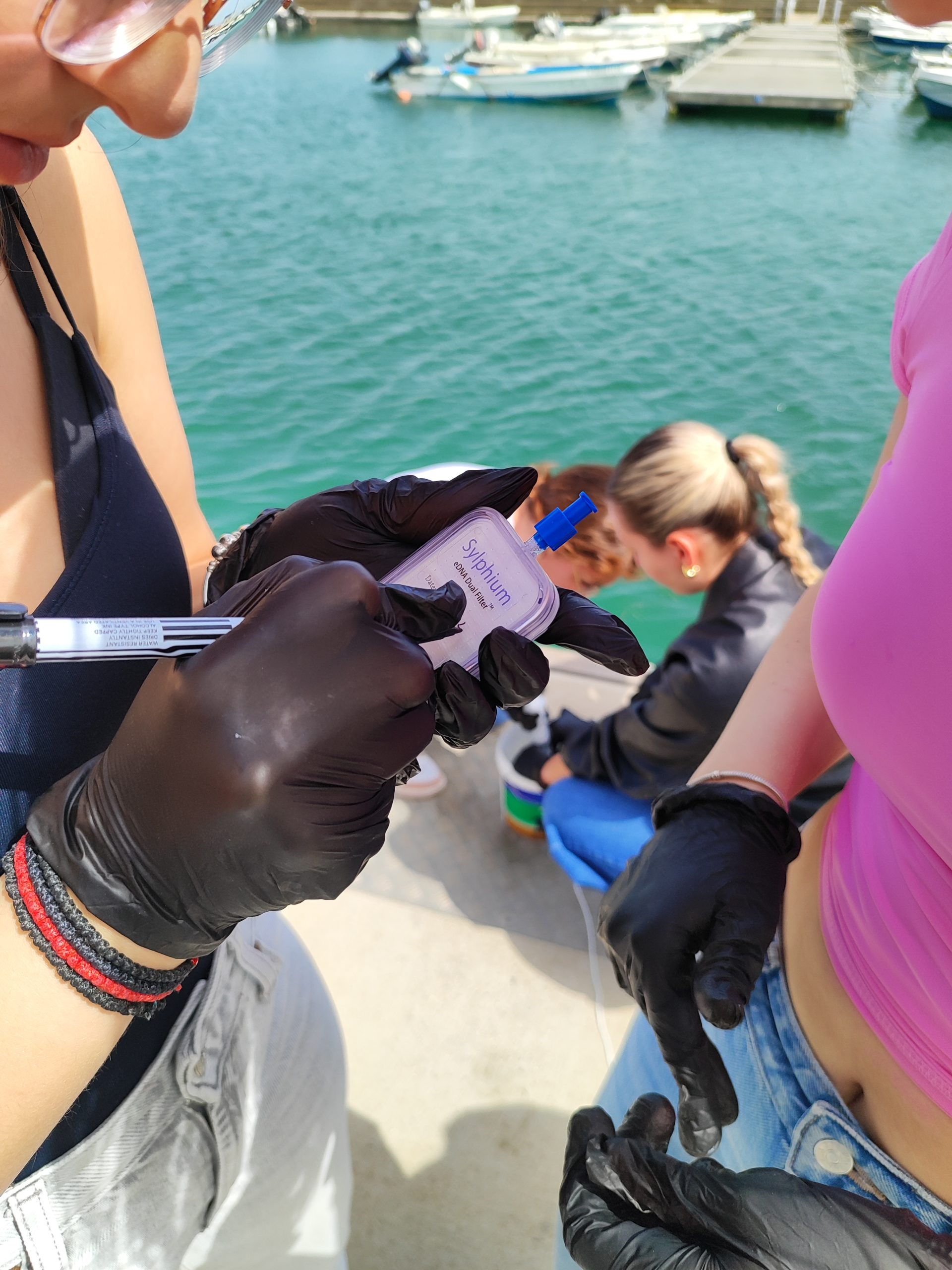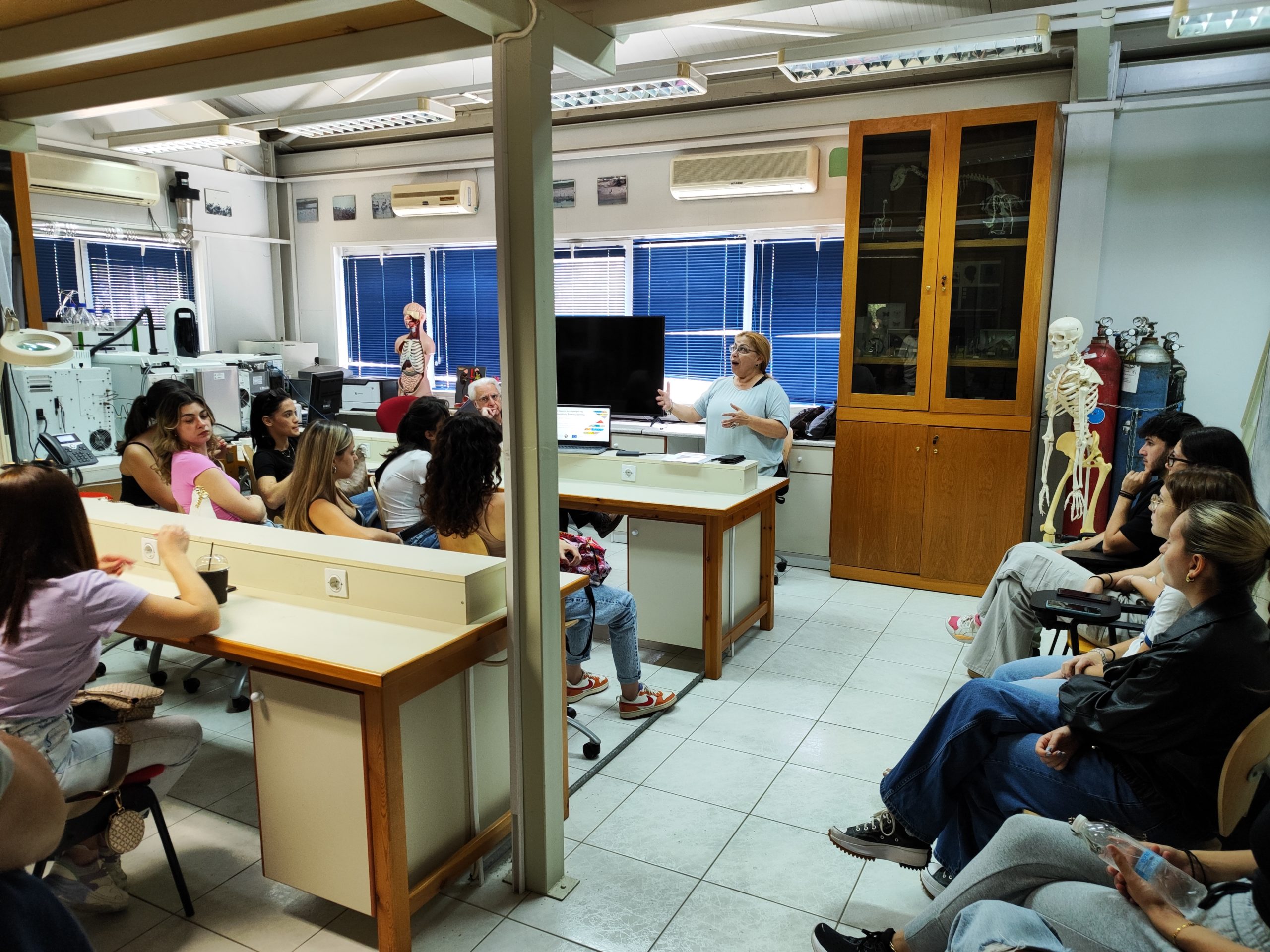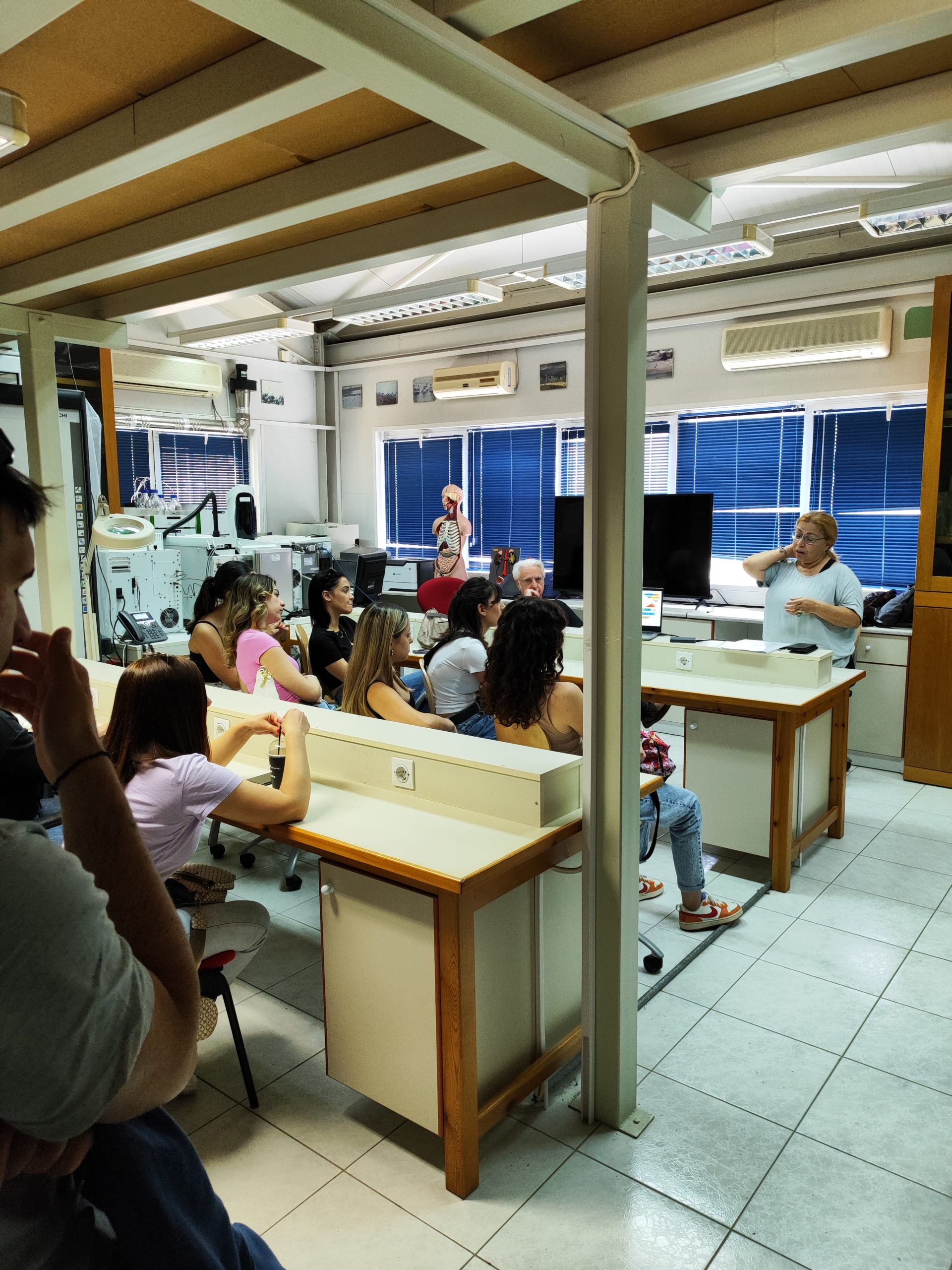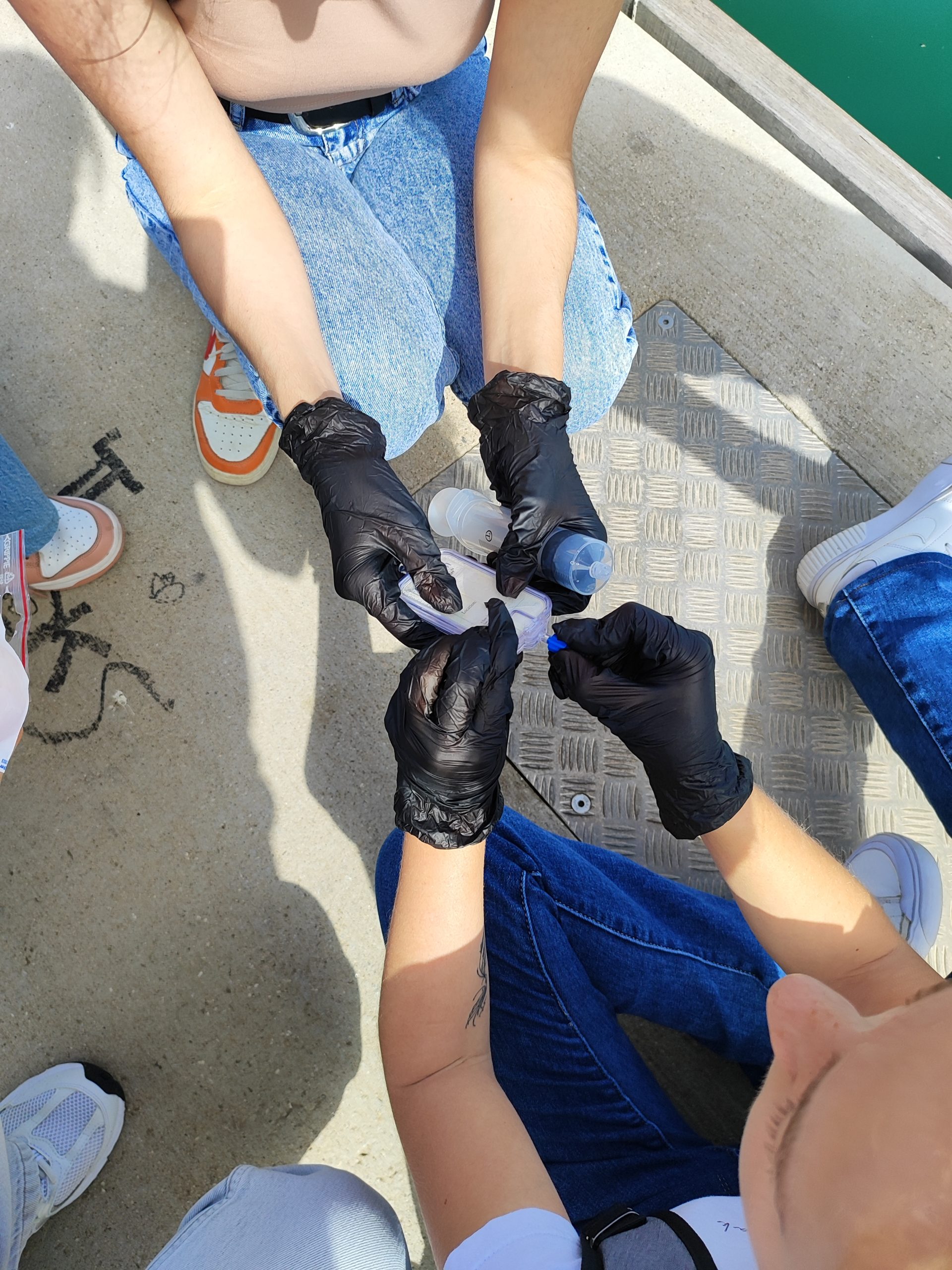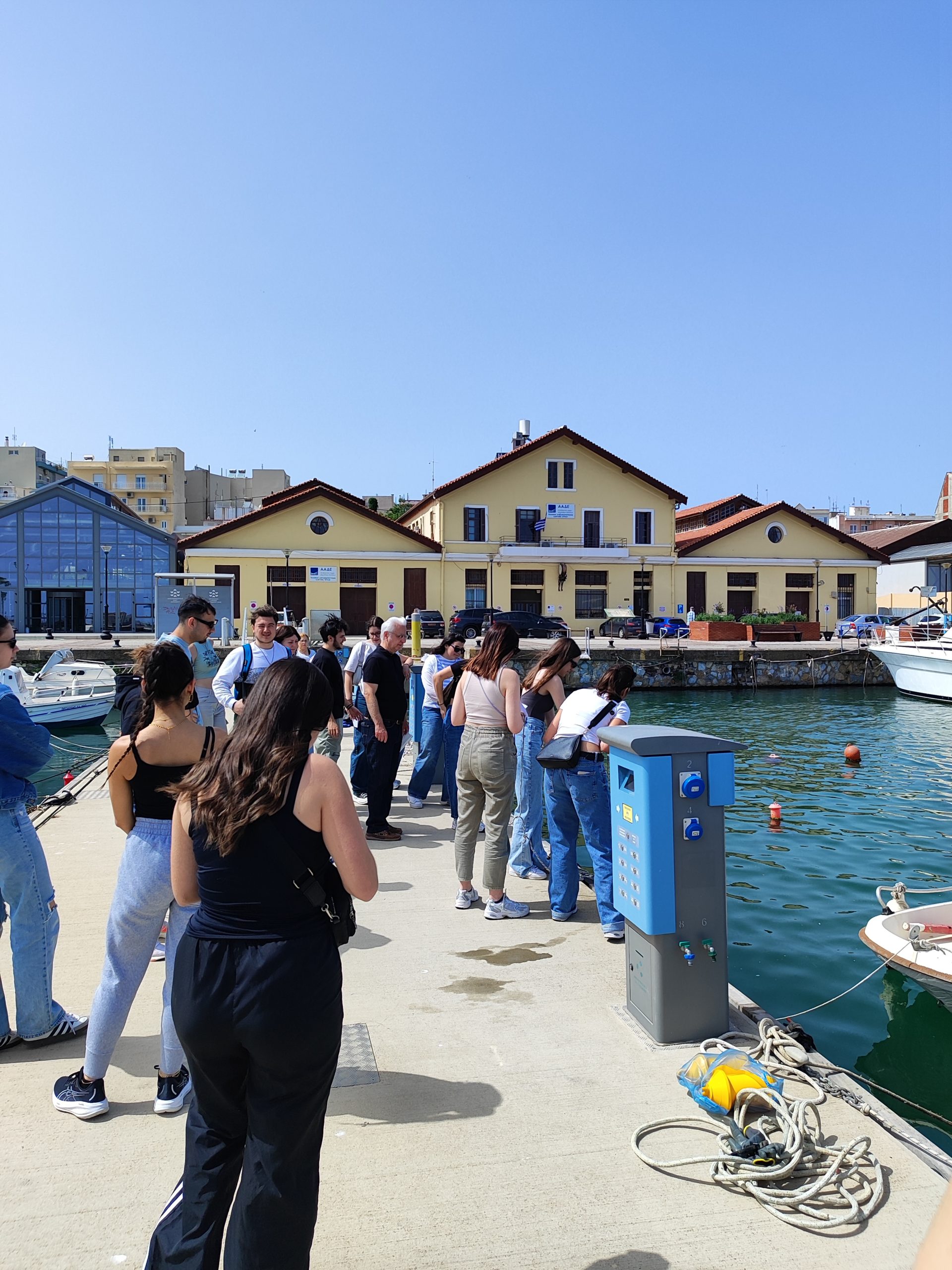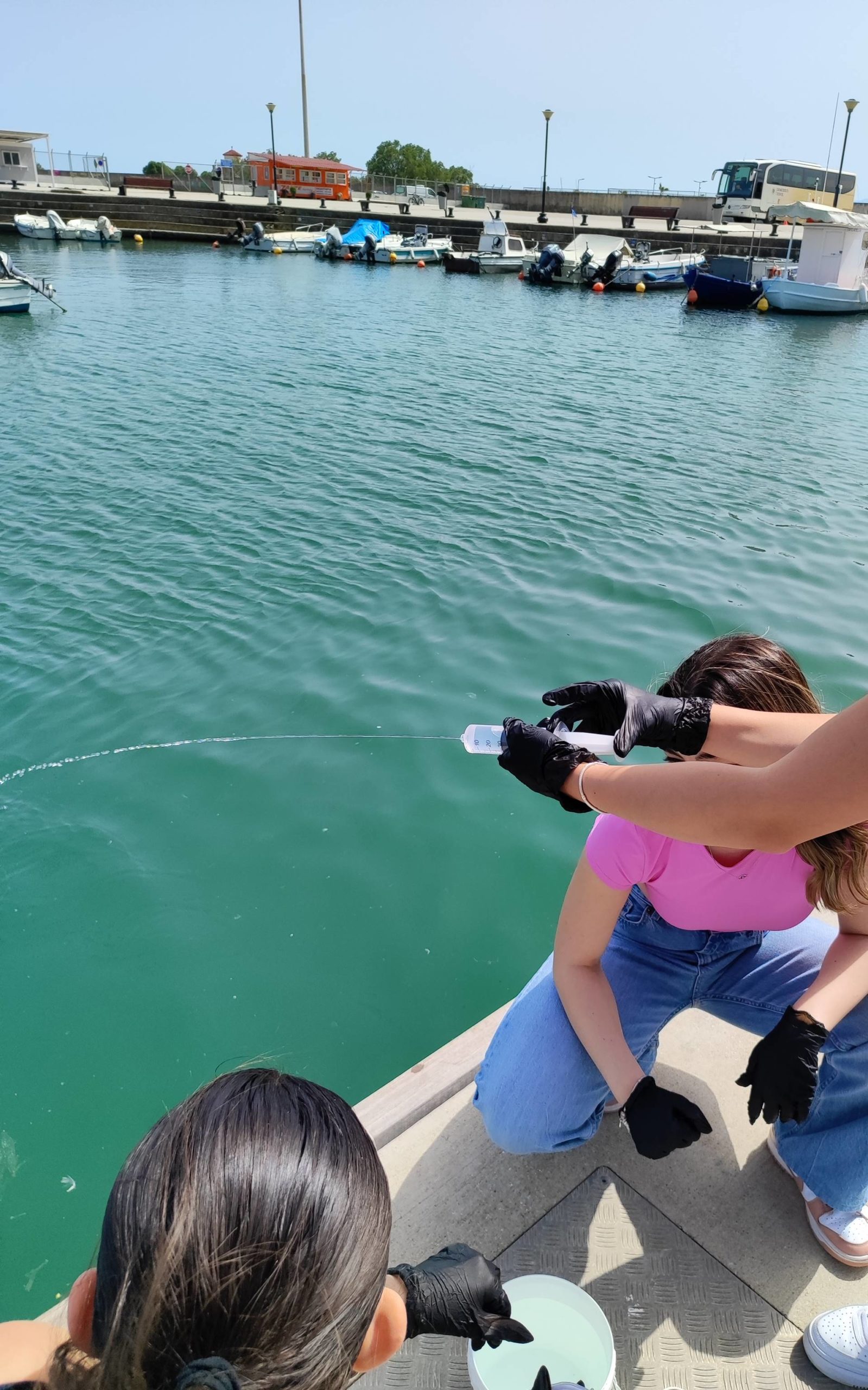e-DNA sampling for non-indigenous species in the port of Alexandroupoli
School of Biology of the Aristotle University of Thessaloniki
Department of Primary Level Education of Alexandroupoli (Democritus University of Thrace) and Alexandroupoli Port Authority S.A.
Greece, 21 May 2024
Last May, the ‘e-DNA sampling for non-indigenous species in the port of Alexandroupoli’ event took place in Greece. During this citizen science event, a group of 25 students of the Department of Primary Level Education of Alexandroupoli (Democritus University of Thrace) filtered seawater at the Port of Alexandroupoli, located in Northern Greece to capture environmental DNA (eDNA) to detect marine invasive species.
Overview of the event
Students were informed of the unprecedented crisis biodiversity is facing, driven by various human activities. An overview of the BGE project’s goals, highlighting the crucial role of biodiversity preservation in sustaining ecosystem balance and services were offered to the participants. To tackle this urgent issue, it is essential to scale up and accelerate biodiversity research by collecting extensive data across Europe and building robust reference libraries. The participants recognized that their involvement as citizen scientists is crucial. As future primary school teachers, they play a significant role in this initiative by raising environmental awareness and advancing biodiversity research and conservation efforts through their profession. For instance, they can organize educational outreach programs in primary schools to educate younger students about the importance of biodiversity and the threats it faces. Similarly, using engaging methods such as storytelling, interactive games, and visual aids can effectively convey these concepts.
During the event, participants were tasked with filtering seawater at the Port of Alexandroupoli, located in Northern Greece to capture environmental DNA (eDNA) and detect marine invasive species. They were provided with a sampling kit, detailed written instructions, and a video tutorial on the sampling process. Additionally, they collected zooplankton samples using plankton net, gaining insight into the vast biodiversity of this community, where non-indigenous species are often found. This hands-on experience demonstrated why traditional taxonomic identification methods often fail to capture the full range of biodiversity, due to the small size and morphological similarities of many species.
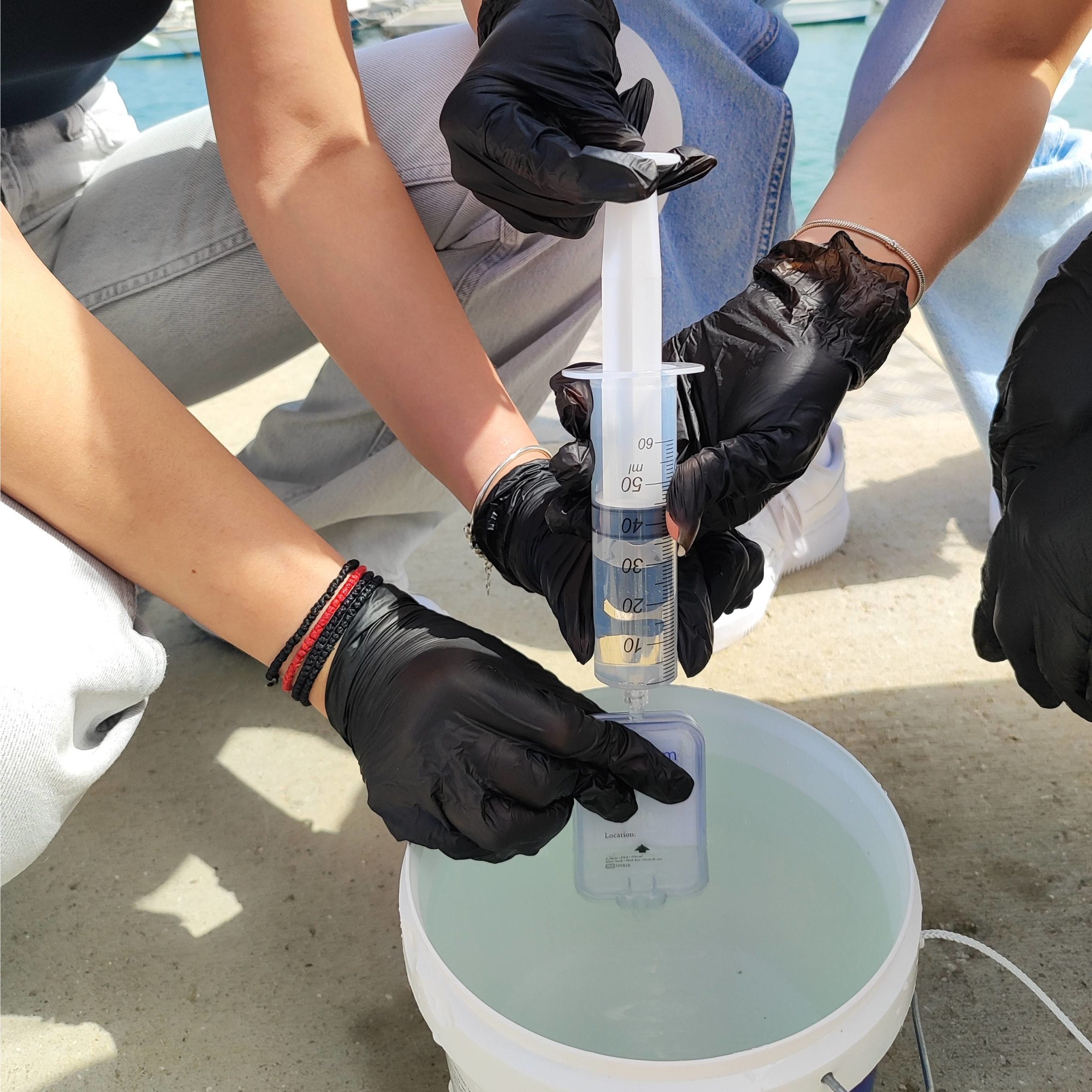
Participants are sampling e-DNA in the port of Alexandroupoli
Goals
- Introduction to the up-to-date situation regarding the global biodiversity crisis: A brief presentation informed the participants about the utility and importance but also the limitations of classical identification methods, in addressing the growing biodiversity loss. They learned how DNA tools can significantly aid in overcoming these challenges.
- Highlighting the importance of biodiversity research and the BGE Project Goals: The main objectives of the BGE project, which focuses on addressing the critical issue of biodiversity loss, were introduced to the participants.
- Highlighting the role of non-indigenous species to the biodiversity crisis: The spread of non-indigenous species to new areas, far from their original distribution range, is recognized as one of the major human impacts threatening ecosystems in terms of biodiversity and function. Examples of marine non-indigenous species recorded in Greek seas were also presented.
- Presentation of the e-DNA sampling procedure: The procedure regarding the e-DNA sampling in the field (e.g., familiarization with the sampling kit/equipment, precautionary measures to avoid possible contamination), was presented step by step to students before their transport to the port.
- Technical Aspects regarding of Biodiversity Research: The importance of reporting accurate metadata for future-proofing the research were also a subject discussed with the participants. Specifically, students were introduced to the technical aspects of biodiversity research.
- Presentation of the classing sampling procedure for marine zooplankton (e.g., type of nets used, samples fixation, species identification)
Content
14.00 Arrival at the venue location (Department of Primary level Education of Alexandroupoli, Democritus University of Thrace). Round of introductions.
14.15 Venue introduction & the big picture. Participants are introduced to the goals of the BGE project and why the preservation of biodiversity is important. The importance of biodiversity preservation was emphasized, highlighting its crucial role in maintaining ecosystem balance, supporting ecosystem services, and safeguarding global health and well-being.
14.45 Introduction to non-indigenous species.
15.15 Boarding on a bus and departure for the port of Alexandroupoli.
15.30 e-DNA sampling in the port of Alexandroupoli & Zooplankton sampling by the classical methodology (by horizontal and vertical tows of plankton net).
15.45 Round of discussions regarding e-DNA sampling
16.00 Boarding on a bus and returning to the University campus.
Feedback summary
Students showed great interest in the process, which was a first-time experience for them. They were engaged in fascinating discussions, but most importantly, they realized the invaluable help of citizens to help us build the map of European biodiversity.
Images by the School of Biology of the Aristotle University of Thessaloniki

